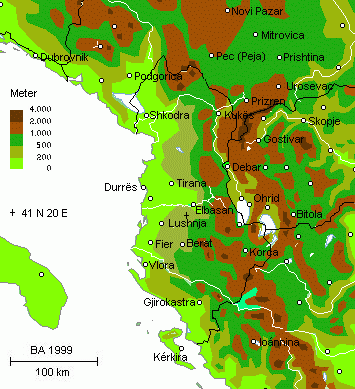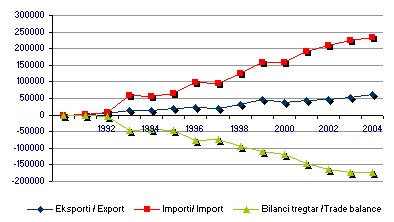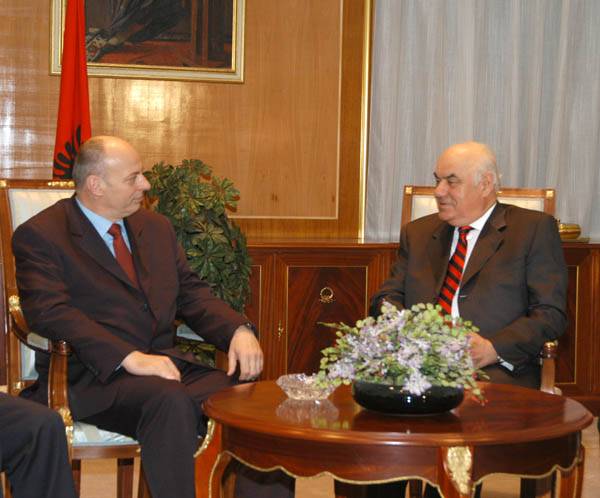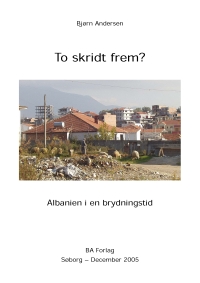Sidste Nyt fra Albanien, Kosóva og Makedonien
The Latest News from Albania, Kosóva and Macedonia
# 305 - 8' årgang - 02.06.2006
Version 1.1 •
PDF for printing •
Info om »Sidste Nyt«
Udgiver:
Bjørn Andersen
Publisher:
Bjoern Andersen

Premierminister Agim Çeku fra Kosóva har netop været på besøg hos Præsident Moisiu og Premierminister Sali Berisha fra Albanien. På billedet Çeku og Berisha.
![]()












